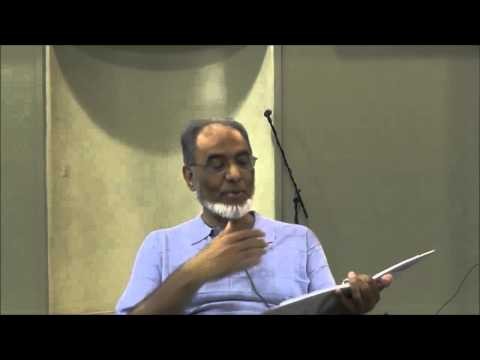The Five Pillars of Prosperity Essentials of FaithBased Wealth Building
Post on: 16 Март, 2015 No Comment

Quick Overview
Details
This book provides readers with a balanced and sensible approach to financial planning and security, it is unique in that it is written by a leading Muslim financial expert who draws on Islamic teachings while showing how these Islamic values are consistent with Jewish and Christian values. Though the primary audience may be American Muslims, anyone interested in financial security will find this practical guide helpful in making wise financial decisions.
Dr. Mirza presents a powerful and provocative case for arranging ones life and the material pursuits in ways that not only benefit the reader but also society at large. He shows how the attainment of wealth and prosperity can be achieved by following five key activities: Earning, Saving, Investing, Spending, and Giving.
The author closes with a discussion on wealth building strategies and wealth preservation. Additionally, he has provided a section of resources and an extensive bibliography for further reading. The book is rich in investment strategies and advice and though the topic is often complex Dr. Mirzas writings are clear and accessible to a general audience.
REVIEWS & ENDORSEMENTS
This book provides great advice on the value of solid basic principles that can and should guide us in life, in our family or in our business. It is good advice whether you are Christian, Muslim, or Jewish. Dr. Mirza has put a lot of wisdom between the covers of this book. John H. Sununu, former N.H. Governor and White House Chief of Staff under President George H. W. Bush
Dr. M. Yaqub Mirza has given us a unique work. I can think of nothing quite like it, bridging faith, economic principles, and practical wisdom. Five Pillars to Prosperity offers sound guidance from a Muslim perspective on the essentials of faith-based wealth building. Mirza includes Christian and Jewish sources in this practical guidebook, showing how the Abrahamic faith traditions share much in common while not overlooking distinctive traits among these three faith traditions. John Esposito, professor of International Affairs and Islamic Studies at Georgetown University and author of The Future of Islam
At a time it too often seems the only moral instruction capital is provided by Wall Street is ‘go forth and multiply,’ Mirza offers an enriching alternative. It is easily read but even my mentor Sir John Templeton, the dean of global investing, would have appreciated it. Though a Christian in the mold of John Calvin, Sir John also avoided the debt, speculation, and other potentially harmful activities that Yaqub explains is part of Shariah law. That should reassure our increasingly financialized world that the three great Abrahamic faiths are as relevant as ever and offer the world far more unified solutions for peace and prosperity than the nightly news often implies. Gary Moore, financial advisor, author of Faithful Finances 101

I loved this book! Not only does Dr. Mirza educate the reader as to the principles of Islamic investing, he illuminates the guiding principles of a religion many of us know only through the cloudy lens of recent and devastating historical events. Because he has made accessible to his readers these principlesprinciples that are the essence of all religionhe has undertaken a tremendous public service. Nancy Luque, Principal Attorney & Partner, Luque Marino LLP
Five Pillars to Prosperity provides practical guidance for an impractical world. The five guidelines are easy to follow and implement and can be passed on from generation to generation. Mulham Shbeib, Vice President of Finance, Marjac Poultry It is best to learn from those who have actually practiced what it is they are teaching. There is no finer representative of the principles in this book than Dr. Mirza. His life is a testament to the principles laid out within these pages. If you want to achieve economic well being and spiritual fulfillment read this book. Dr. Miles K. Davis, Dean for Harry F. Byrd School of Business, Shenandoah University
Although specifically tailored to a Muslim audience, Five Pillars to Prosperity provides a holistic approach that I, as a Christian, found refreshing and helpful. Dr. Douglas M. Johnston, President and Founder, International Center for Religion and Diplomacy and author of Religion, Terror, and Error: U.S. Foreign Policy and the Challenge of Spiritual Engagement
It is widely assumed that Shariah-complaint investing is not consistent with Wall Street finance. In his book, Dr. Mirza, an expert in both approaches to finance, demonstrates that this is not the case and shows the reader how modern financial transactions can satisfy the demands of major western commercial markets while remaining Shariah-compliant. It is a welcome contribution to the increasingly complex, international world of modern finance. Richard Gross, Attorney and Senior Manager, BW Realty Advisors
This is an outstanding addition to the literature on financial management! Dr. Mirza illuminating work combines modern wealth management with Muslim, Christian and Jewish morals. Those who read Five Pillars to Prosperity will learn from his experience and will benefit from hes unique involvement in a range of institutions. This book is easy to read, and brings together the best financial advice from ancient to modern times. Dr. Omar Altalib, Assistant Professor of Sociology and Anthropology, International Islamic University, Malaysia
Yaqub Mirza provides readers with advice about personal financial habits and planning that is very important and useful for people of all faiths. His main contribution lies in showing that this advice can be made consistent with Islamic finance principles by only small modifications in behaviour and choice of financial strategies. His work fills an important and much neglected niche in the market for financial planning advice. Herbert Grubel, Professor of Economics Emeritus, Simon Fraser University and Senior Fellow, The Fraser Institute, Canada














